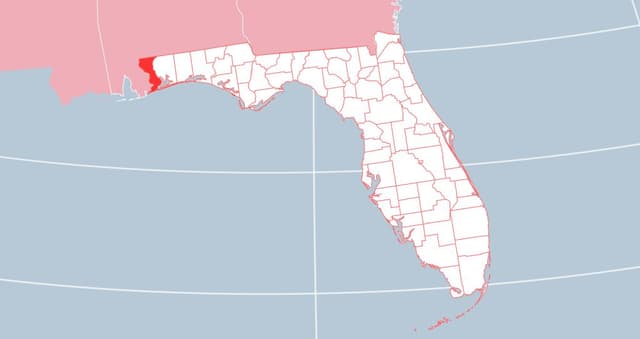
Rehabs in Escambia
Escambia is in the northwestern part of Florida. It is the oldest division of the state. According to 2020 statistics, it had a population of 321,000 people. Pensacola is the seat and the largest city.
Furthermore, the Pensacola-Ferry Pass-Brent, FL Metropolitan Statistical Area includes the division.
Substance Abuse Statistics in Escambia County
Though Escambia rehabs offer many solutions to problems, here are the statistics for substance abuse.
In 2013, there were 10 heroin-related deaths in the division. It is much higher than in the neighboring parts. Unfortunately, the number has increased to 12 in 2014. In 2015, it had 28 heroin deaths.
Further, it had 30 accidental deaths related to prescription opioids. However, that increased by 107% in 2014. In 2015, there were 34 casualties due to oxycodone. Also, it had 45 deaths related to hydrocodone.
Moreover, the county provided statistics that there were 64 casualties related to methadone and 30 casualties due to fentanyl.
Inpatient, Outpatient, and PHP Rehab
Inpatient
If you've been sent to the hospital for a test and need to remain overnight, you're being treated as an inpatient. When arriving at the hospital, a member of staff will greet you and explain the procedures and what to expect.
Inpatient care is offered in a hospital or other inpatient institution where you stay for at least one night.
Outpatient
Outpatient care is delivered on an outpatient basis and includes services such as consultation, diagnosis, treatment, observation, intervention, and rehabilitation. Even when offered outside of hospitals, this care might incorporate modern medical technology and procedures.
PHP
Although partial hospitalization programs help psychiatric patients, numerous centers have included this option in rehabs. Patients frequently pursue PHP shortly following the completion of decontamination and inpatient therapy. In most cases, the PHP requires the patient to be available for treatment on a daily basis.
Drug and Alcohol Evaluation
An evaluation typically consists of the following components:
- Screening: The initial stage in which the staff checks whether or not there is an issue. The purpose is to find an issue and the answer is generally a yes or no.
- Analytics: The second step is to figure out what the problem is. In this case, drug testing may be necessary.
- Follow-up: A follow-up is only recommended if therapy or counseling is required. This would certainly depend on the previous outcomes. The goal is to check in on the topic.
Rehab Centers in Escambia County
Florida Springs Wellness and Recovery
They specialize in habit, substance use, and drug abuse. Further, they solve issues such as grief, trauma, and PTSD.
The center targets elders and adults. Also, they work in the veteran's communities. You can attend the hub alone, with your family, or in a group.
Here are the treatment programs: 12-step and substance use. The therapy types are CBT, IFS, and MBCT.
Recovery Bay Center
The specialties are alcohol use, obsession, and anxiety. Further, they deal with PTSD, trauma, grief, and stress.
Besides, they focus on mental health problems. The target age is adults.
Canopy Cove Christian Eating Disorder Treatment
They specialize in dual diagnosis and anxiety. Further, they treat:
- OCD
- Grief
- Child
- PTSD
- Self Esteem
Besides, they focus on mental health cases like DID and impulse control. In short, they offer antidote approaches like DBT, EMDR, CBT, and MBCT.
The target age is adults and teens.
How to Force a Teen into Rehab?
If your child has an addiction and you want to help her/him, you have to understand some points. The first step is to understand addiction, including what causes it, what it does to the individual's brain and behavior, and why treatment is required.
In addition, it might be difficult to assist a loved one in receiving an antidote. However, by knowing about its origins and healing options, family and friends can be better prepared to address their loved ones, offering the crucial love and support that can make the process more effective.
